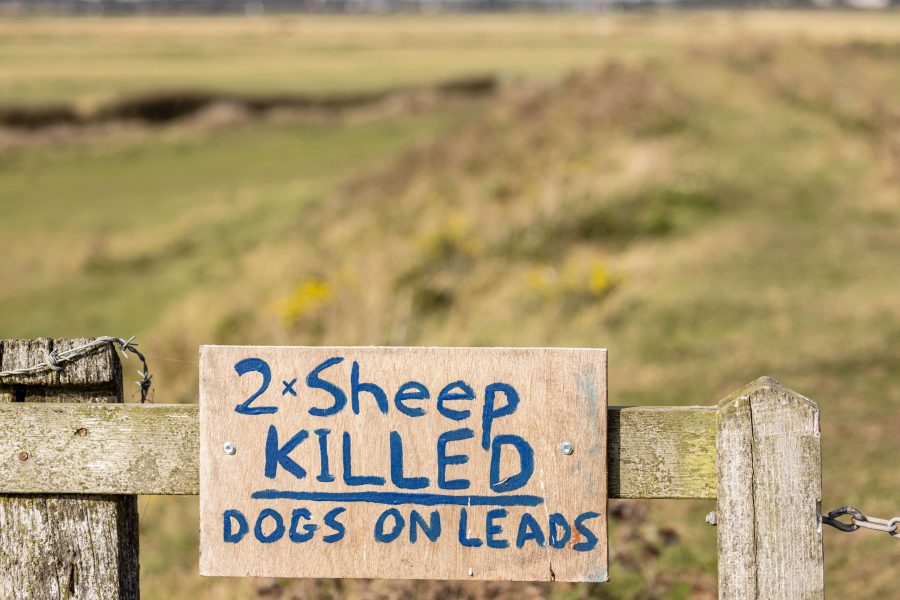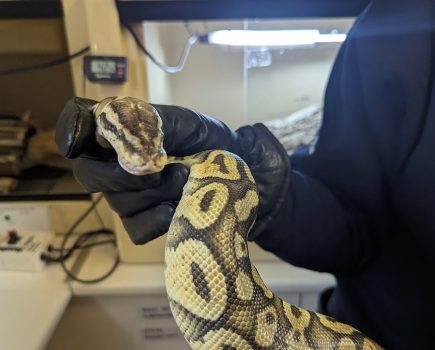As the peak summer holiday season arrives in the UK, the National Sheep Association (NSA) is issuing a reminder to holidaymakers of the risk posed by their pet dogs to sheep they may meet on their countryside breaks.
During walks in the countryside, it is not uncommon to come across grazing livestock including sheep and if a dog is being walked off lead an encounter could result in a devastating incident for all involved.
NSA Chief Executive Phil Stocker says: “It is every dog’s instinct to chase, even if they are usually obedient. Chasing of sheep by dogs, termed ‘sheep worrying’ can do serious damage through stress and injury. Many sheep fleeing from dogs are often killed or seriously injured by their panicked attempts to escape. The loss of sheep can be deeply distressing to farmers causing ongoing worry and also significant financial losses.”
The fine and dry weather experienced so far in the UK this summer may mean more people choosing to stay in the UK to enjoy a summer holiday alongside their dogs. NSA, a charity representing the views of UK sheep farmers, is concerned this could increase the number of incidents of sheep worrying by dogs occurring. Holiday makers and those enjoying countryside or coastal day tips are unlikely to be very familiar with the area in which they are walking and therefore unaware that that sheep and cattle could be grazing nearby.
Mr Stocker continues: “Sheep farmers across the UK continue to be affected by attacks on their flocks sheep worrying attacks by dogs either left to run off lead or by dogs that have strayed from their homes or holiday accommodation.
“It is crucially important that dog owners must be aware of the serious issue of sheep worrying by dogs and take action to be a responsible dog owner whilst enjoying their holidays this summer.”
NSA is urging dog walkers to keep their pets on leads during walks through the countryside, no matter how obedient they consider their pet to be.
Mr Stocker adds: “Please keep your dog on a lead whenever there is a chance sheep could be nearby and avoid walking closely to them if at all possible. You may not consider your dog capable of causing physical injury to another animal but barking and chasing are instinctive responses that will cause great stress to sheep and unfortunately in many cases this also leads to physical attacks causing pain and suffering and in the worst incidents even death.”
NSA is also highlighting the potential consequences for dog owners found to be responsible for an attack on livestock following progress with a long awaited amendment to legislation confirmed last week. The updated legislation that is one step closer to becoming law would strengthen police powers to address incidents involving dog attacks on farmed animals.
NSA Policy Manager Nicola Noble explains: “The Dogs (Protection of Livestock) (Amendment) Bill has now successfully passed its stage in the House of Commons.
“This bill enhances the authority of the police to act in cases of livestock worrying and also expands the range of locations where offences can occur to include roads and public paths, thereby offering increased protection to a wider range of animals across more areas.
“It is important for dog owners to know that the bill aims to increase the maximum penalty for a dog attack on livestock and so not only could their actions result in harm to animals attacked, in the near future it could also result in increased financial penalties for themselves.”
Information for dog walkers on how to avoid being involved in incidents whilst out enjoying the countryside this summer is available on the NSA website at www.sheepworrying.org.uk
NSA also produces a range of signage that sheep farmers can display in an effort to alert walkers to the presence of nearby livestock. The Association also recently launched a sheep worrying by dogs case log for farmers affected to help create a formal record of the number of attacks happening across the country each year. Resources and further information are available from the NSA website here.
More news like this can be found in The Country Smallholder magazine. Subscribe here.
For FREE updates from the world of smallholding, sign up for The Country Smallholder newsletter here.








